- NEW: Ringo Starr: "Ravi was a great loss musically, spiritually and physically"
- Shankar taught Beatle George Harrison to play the sitar
- India's prime minister praises the man and his music
- His ethereal sound embodied Eastern transcendence for Westerners
(CNN) -- His music transcended trends and cultural barriers. Pandit Ravi Shankar's life, which traversed nearly a century, ended Tuesday.
The legendary sitar player, who taught Beatle George Harrison how to play the stringed instrument and brought Indian music to the West, passed away at age 92 in the early evening in San Diego, near his home, according to his wife, Sukanya, and daughter Anoushka Shankar, who were by his side.
Shankar was the father of jazz singer Norah Jones as well. He is also survived by three grandchildren and four great-grandchildren, according to his record label, East Meets West Music.
His health had suffered over the past year, according to a statement from his record label, and he underwent heart valve replacement surgery last Thursday.
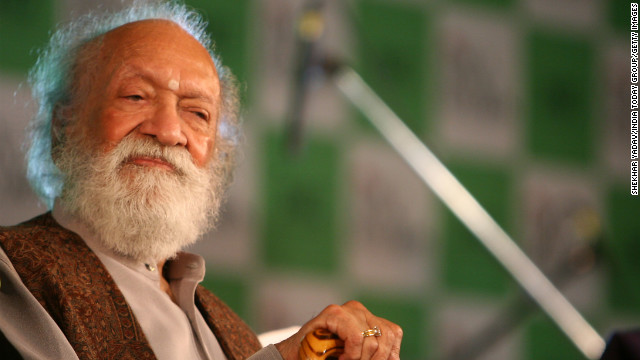 Pandit Ravi Shankar died Thursday, December 11, at age 92. The legendary sitar player brought Indian music to the West and taught Beatle George Harrison how to play the instrument.
Pandit Ravi Shankar died Thursday, December 11, at age 92. The legendary sitar player brought Indian music to the West and taught Beatle George Harrison how to play the instrument.
 Among Shankar's survivors is his daughter, musician Norah Jones.
Among Shankar's survivors is his daughter, musician Norah Jones.
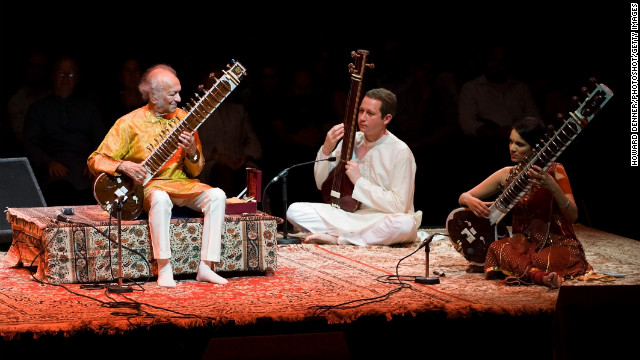 Shankar performs with his daughter, Anoushka Shankar, right, in London in June 2008 during his final tour of Europe.
Shankar performs with his daughter, Anoushka Shankar, right, in London in June 2008 during his final tour of Europe.
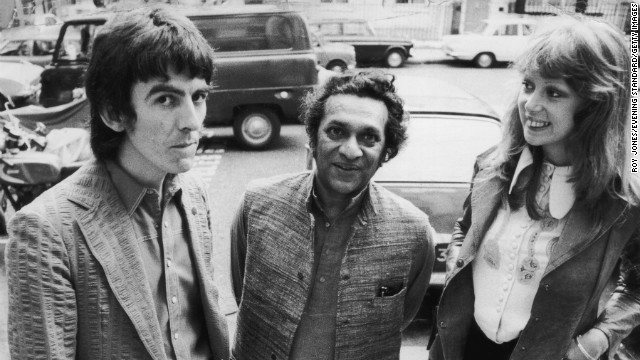 Shankar poses with Beatle George Harrison, left, and Harrison's wife, model Patti Boyd, in August 1972.
Shankar poses with Beatle George Harrison, left, and Harrison's wife, model Patti Boyd, in August 1972.
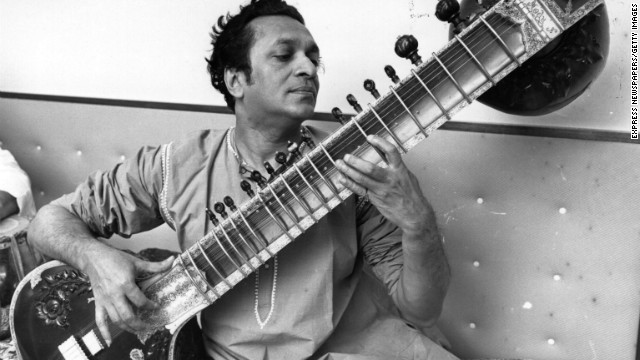 Shankar plays his sitar in 1966.
Shankar plays his sitar in 1966.
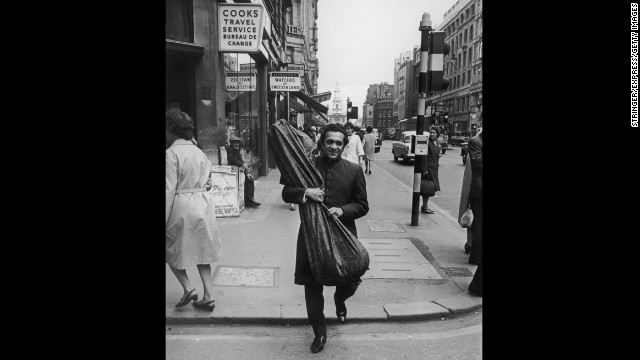 Shankar walks the streets of London with his sitar during a visit circa 1967.
Shankar walks the streets of London with his sitar during a visit circa 1967.
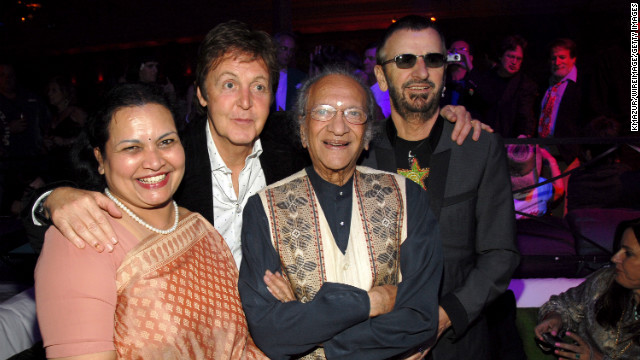 Shankar's wife, Sukanya Shankar, poses with her husband and Beatles Paul McCartney and Ringo Starr.
Shankar's wife, Sukanya Shankar, poses with her husband and Beatles Paul McCartney and Ringo Starr.
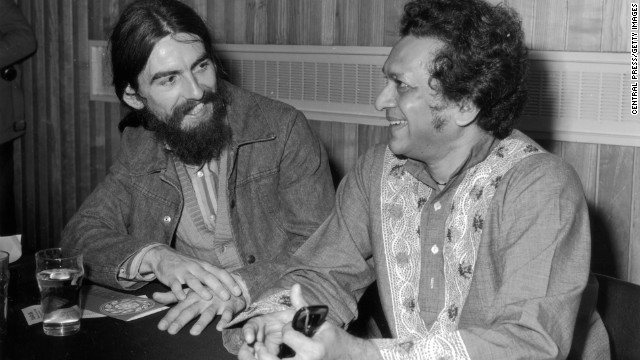 Harrison and Shankar worked together on recordings and tours in the 1970s.
Harrison and Shankar worked together on recordings and tours in the 1970s.
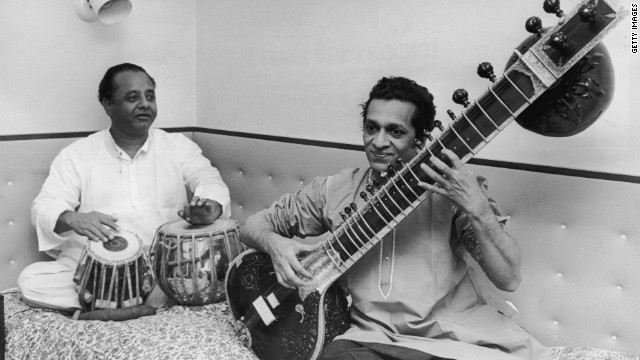 Shankar practices with tabla player Alla Rakha in 1967.
Shankar practices with tabla player Alla Rakha in 1967.
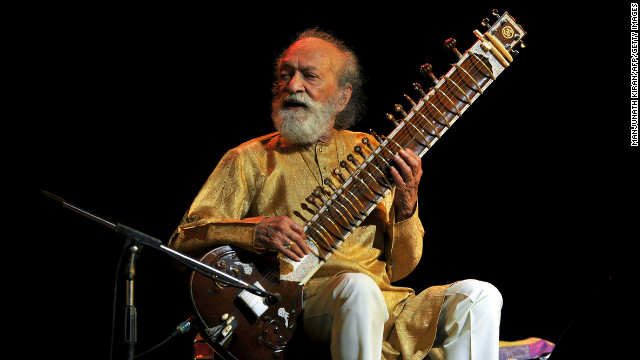 Shankar plays during the Premaanjali Festival 2012 on February 7 at the palace in Bangalore, India.
Shankar plays during the Premaanjali Festival 2012 on February 7 at the palace in Bangalore, India.
 Photos: Sitar legend Ravi Shankar
Photos: Sitar legend Ravi Shankar
 Indian sitar maestro Ravi Shankar died December 11 at age 92. The legendary sitar player brought Indian music to the West and taught Beatle George Harrison how to play the stringed instrument. Among his survivors is daughter Norah Jones, the pop and jazz singer.
Indian sitar maestro Ravi Shankar died December 11 at age 92. The legendary sitar player brought Indian music to the West and taught Beatle George Harrison how to play the stringed instrument. Among his survivors is daughter Norah Jones, the pop and jazz singer.
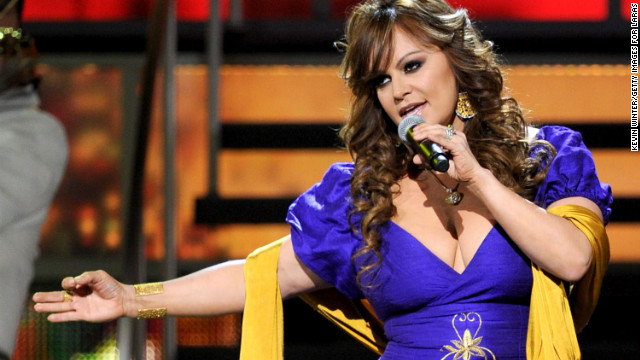 Singer Jenni Rivera, 43, died when the small plane she was traveling in crashed in the mountains of northern Mexico, her brother told CNN. The plane wreckage was found Sunday, December 9.
Singer Jenni Rivera, 43, died when the small plane she was traveling in crashed in the mountains of northern Mexico, her brother told CNN. The plane wreckage was found Sunday, December 9.
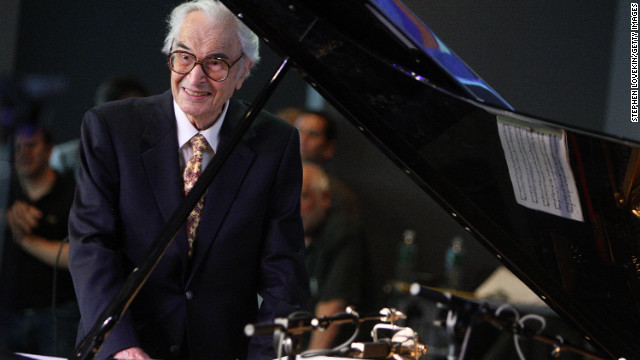 Jazz pianist Dave Brubeck, 91, died December 5 from heart failure, said his manager, Russell Gloyd.
Jazz pianist Dave Brubeck, 91, died December 5 from heart failure, said his manager, Russell Gloyd.
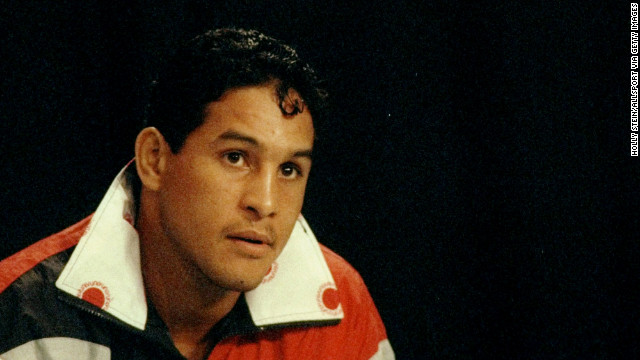 Puerto Rican boxer Hector "Macho" Camacho died on November 24. A gunman shot him in the face in front of a bar in his hometown of Bayamon.
Puerto Rican boxer Hector "Macho" Camacho died on November 24. A gunman shot him in the face in front of a bar in his hometown of Bayamon.
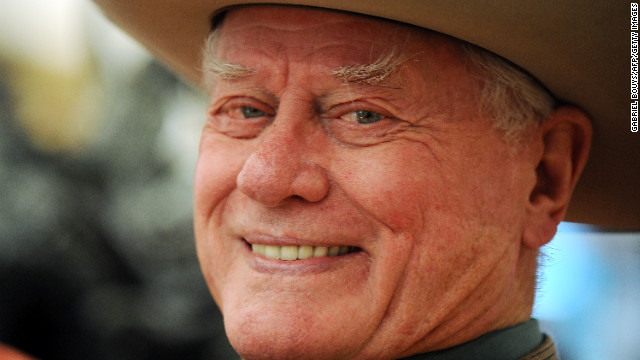 Actor Larry Hagman, who played scheming oil tycoon J.R. Ewing on "Dallas," died November 23 of complications from cancer. He was 81.
Actor Larry Hagman, who played scheming oil tycoon J.R. Ewing on "Dallas," died November 23 of complications from cancer. He was 81.
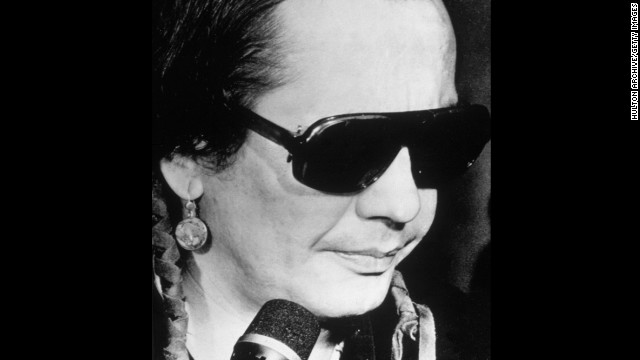 Native American activist Russell Means died October 22 from throat cancer, an Oglala Lakota Sioux nation representative said.
Native American activist Russell Means died October 22 from throat cancer, an Oglala Lakota Sioux nation representative said.
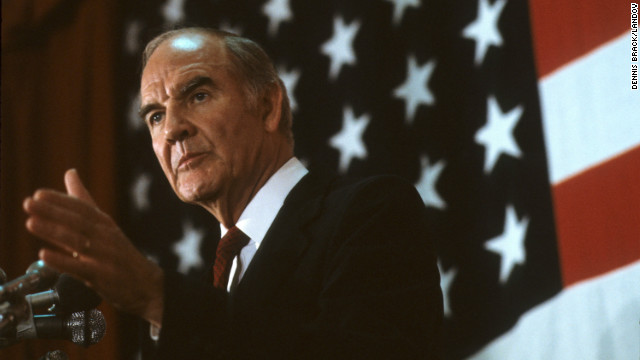 Former Sen. George McGovern, 90, died on October 21. McGovern was the Democratic nominee for president in 1972. He ran against incumbent Richard Nixon and won only 17 electoral votes to Nixon's 520. He served in the U.S. Senate and House representing South Dakota before his loss for the top office.
Former Sen. George McGovern, 90, died on October 21. McGovern was the Democratic nominee for president in 1972. He ran against incumbent Richard Nixon and won only 17 electoral votes to Nixon's 520. He served in the U.S. Senate and House representing South Dakota before his loss for the top office.
 Former U.S. Sen. Arlen Specter of Pennsylvania died at age 82 of complications from non-Hodgkin's lymphoma on October 14 at his home in Philadelphia, his family said. Specter served five terms as a Republican senator and switched political affiliation in 2009.
Former U.S. Sen. Arlen Specter of Pennsylvania died at age 82 of complications from non-Hodgkin's lymphoma on October 14 at his home in Philadelphia, his family said. Specter served five terms as a Republican senator and switched political affiliation in 2009.
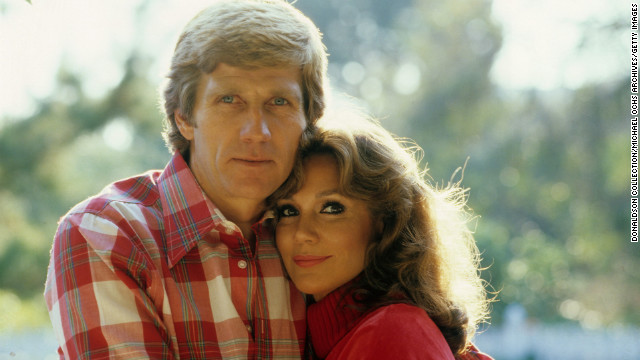 TV and radio personality Gary Collins -- seen here in "Hour Magazine" and also known for his roles in television series including "The Sixth Sense" and "The Wackiest Ship in the Army" -- died on October 13, according to officials in Harrison County, Mississippi. He was 74.
TV and radio personality Gary Collins -- seen here in "Hour Magazine" and also known for his roles in television series including "The Sixth Sense" and "The Wackiest Ship in the Army" -- died on October 13, according to officials in Harrison County, Mississippi. He was 74.
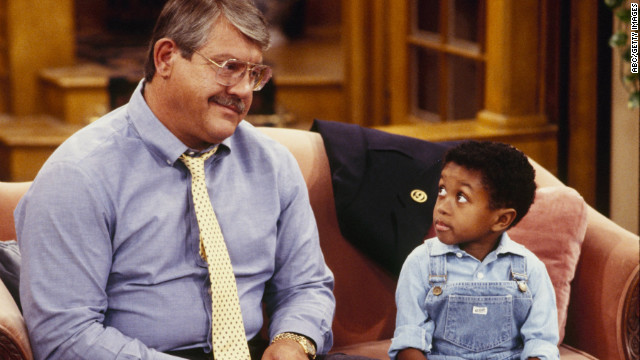 Former NFL player and actor Alex Karras died on October 10 in Los Angeles, a family spokesman said. He was 77.
Former NFL player and actor Alex Karras died on October 10 in Los Angeles, a family spokesman said. He was 77.
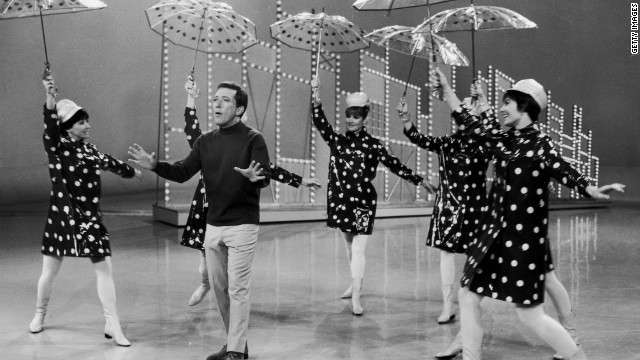 Legendary singer Andy Williams, known for his smooth voice and classics such as "Moon River," died after a yearlong battle with bladder cancer at his Branson, Missouri, home on September 25. He was 84.
Legendary singer Andy Williams, known for his smooth voice and classics such as "Moon River," died after a yearlong battle with bladder cancer at his Branson, Missouri, home on September 25. He was 84.
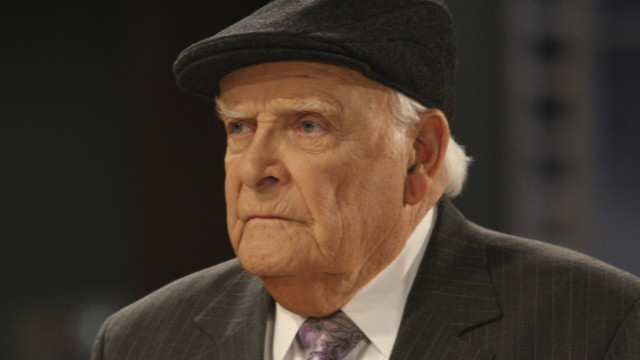 Actor John Ingle, who played patriarch Edward Quartermaine on ABC's "General Hospital," died September 15 at age 84.
Actor John Ingle, who played patriarch Edward Quartermaine on ABC's "General Hospital," died September 15 at age 84.
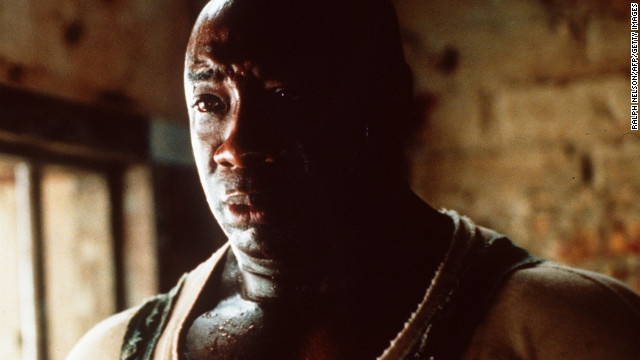 Michael Clarke Duncan, nominated for an Academy Award for his role in the 1999 film "The Green Mile," "suffered a myocardial infarction on July 13 and never fully recovered," a written statement from Joy Fehily said. He died September 3 at age 54.
Michael Clarke Duncan, nominated for an Academy Award for his role in the 1999 film "The Green Mile," "suffered a myocardial infarction on July 13 and never fully recovered," a written statement from Joy Fehily said. He died September 3 at age 54.
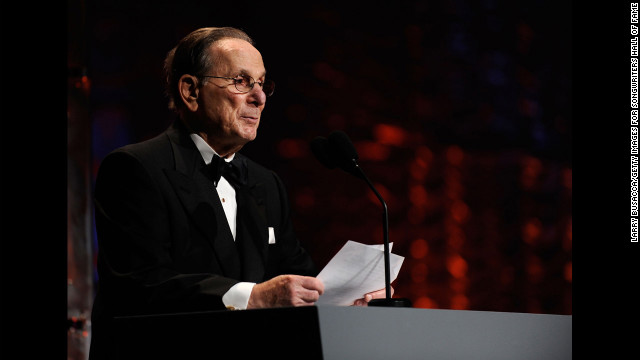 Hal David, the lyricist behind such standards as "Raindrops Keep Falling on My Head" and "What the World Needs Now is Love," died September 1 at age 91.
Hal David, the lyricist behind such standards as "Raindrops Keep Falling on My Head" and "What the World Needs Now is Love," died September 1 at age 91.
 Neil Armstrong, the American astronaut who made "one giant leap for mankind" when he became the first man to walk on the moon, died August 25. He was 82.
Neil Armstrong, the American astronaut who made "one giant leap for mankind" when he became the first man to walk on the moon, died August 25. He was 82.
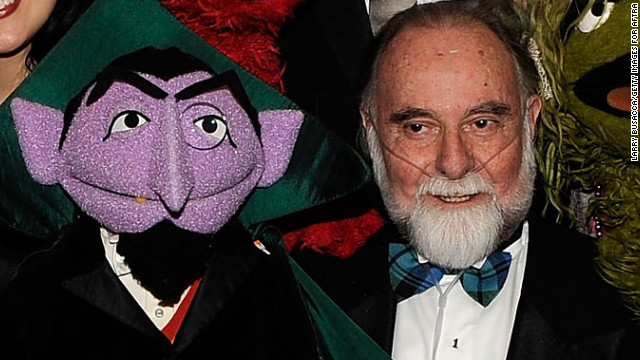 Puppeteer Jerry Nelson, famous for lending his voice to Muppets on "Sesame Street," "The Muppet Show" and "Fraggle Rock," died August 23. He was 78.
Puppeteer Jerry Nelson, famous for lending his voice to Muppets on "Sesame Street," "The Muppet Show" and "Fraggle Rock," died August 23. He was 78.
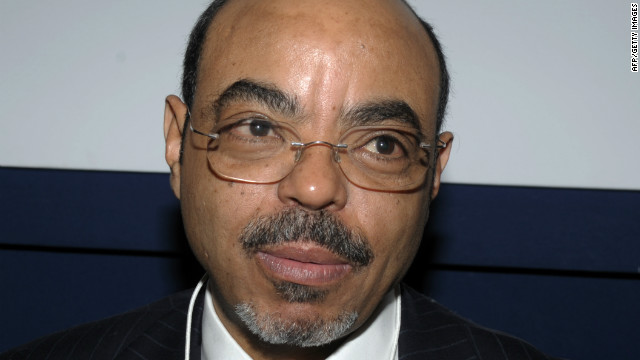 Ethiopian Prime Minister Meles Zenawi, a strongman in the troubled Horn of Africa and a key United States ally, died on August 20 at the age of 57.
Ethiopian Prime Minister Meles Zenawi, a strongman in the troubled Horn of Africa and a key United States ally, died on August 20 at the age of 57.
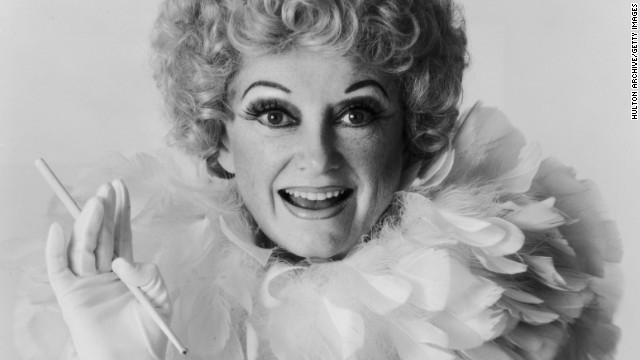 Comedian Phyllis Diller, known for her self-deprecating humor, died "peacefully in her sleep" on August 20. She was 95.
Comedian Phyllis Diller, known for her self-deprecating humor, died "peacefully in her sleep" on August 20. She was 95.
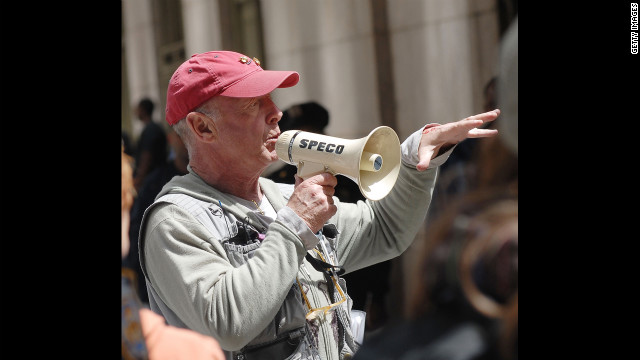 Film director Tony Scott left notes in his car and office before plunging to his death from the Vincent Thomas Bridge in San Pedro, California, a Los Angeles County coroner official said. Scott died August 19 at age 68.
Film director Tony Scott left notes in his car and office before plunging to his death from the Vincent Thomas Bridge in San Pedro, California, a Los Angeles County coroner official said. Scott died August 19 at age 68.
 Actor Ron Palillo, who played class clown Arnold Horshack on the 1970s television comedy "Welcome Back, Kotter," died from a heart attack at age 63 on August 14.
Actor Ron Palillo, who played class clown Arnold Horshack on the 1970s television comedy "Welcome Back, Kotter," died from a heart attack at age 63 on August 14.
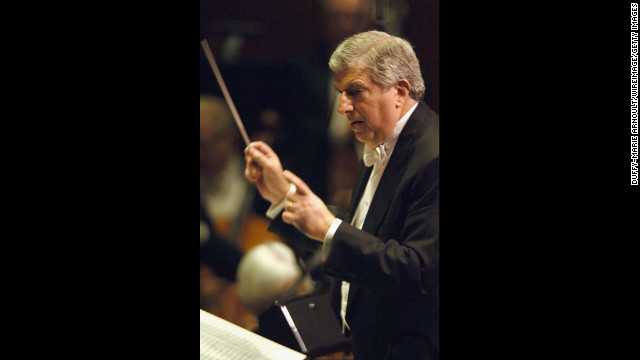 Marvin Hamlisch, a prolific American composer, died August 6 after a more than four-decade career that spanned film, music, television and theater. He was 68.
Marvin Hamlisch, a prolific American composer, died August 6 after a more than four-decade career that spanned film, music, television and theater. He was 68.
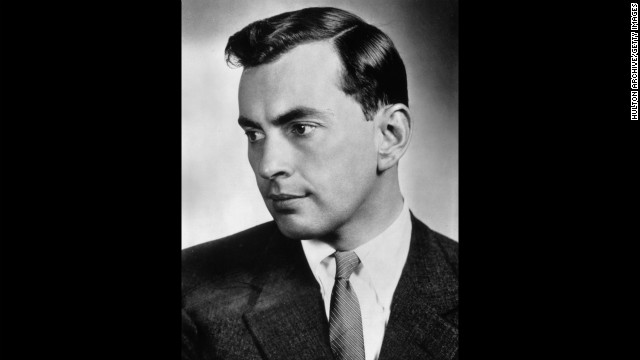 Writer Gore Vidal died July 31 of complications from pneumonia, a nephew said. He was 86.
Writer Gore Vidal died July 31 of complications from pneumonia, a nephew said. He was 86.
 At 69, actress Lupe Ontiveros, who co-starred in the hit films "Selena" and "As Good As It Gets," died of liver cancer on July 26.
At 69, actress Lupe Ontiveros, who co-starred in the hit films "Selena" and "As Good As It Gets," died of liver cancer on July 26.
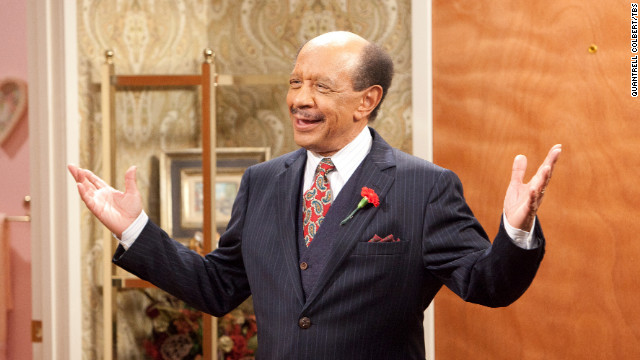 Sherman Hemsley, who played the brash George Jefferson on "All in the Family" and "The Jeffersons," died July 24 at age 74.
Sherman Hemsley, who played the brash George Jefferson on "All in the Family" and "The Jeffersons," died July 24 at age 74.
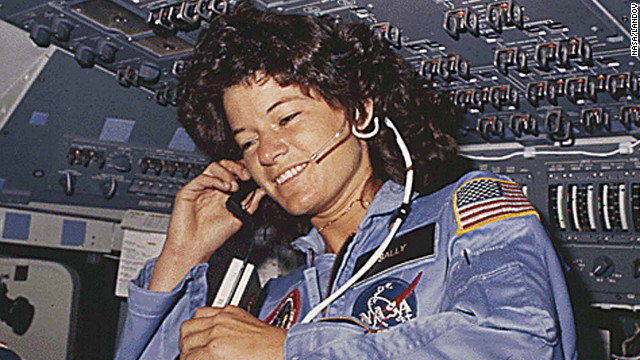 Sally Ride, the first American woman to fly in space, died after a 17-month battle with pancreatic cancer on July 23. She was 61.
Sally Ride, the first American woman to fly in space, died after a 17-month battle with pancreatic cancer on July 23. She was 61.
 Keyboard player Jon Lord, who fused classical and heavy metal to make Deep Purple one of the biggest rock bands in the world, died July 16 after a long battle with pancreatic cancer. He was 71.
Keyboard player Jon Lord, who fused classical and heavy metal to make Deep Purple one of the biggest rock bands in the world, died July 16 after a long battle with pancreatic cancer. He was 71.
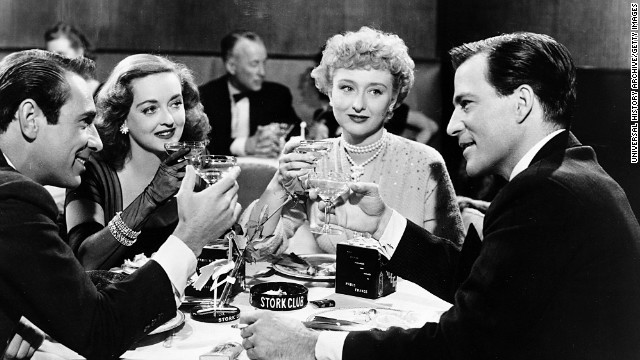 Oscar-winning actress Celeste Holm died at her home in New York on July 15 at the age of 95. Here Holm, center, appears in 1950's "All About Eve" with Garry Merrill, from left, Bette Davis and Hugh Marlow.
Oscar-winning actress Celeste Holm died at her home in New York on July 15 at the age of 95. Here Holm, center, appears in 1950's "All About Eve" with Garry Merrill, from left, Bette Davis and Hugh Marlow.
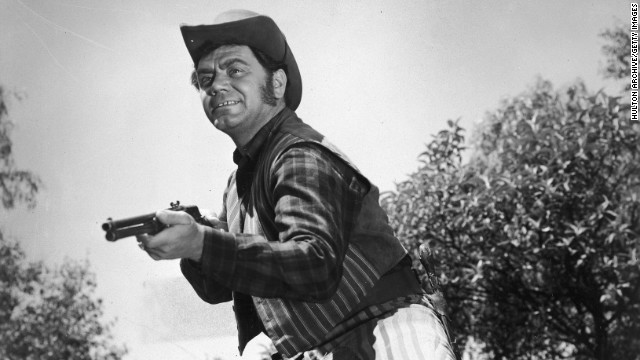 On July 8, film and television actor Ernest Borgnine, who won an Academy Award for his portrayal of a lovelorn butcher in 1955's "Marty," died at age 95.
On July 8, film and television actor Ernest Borgnine, who won an Academy Award for his portrayal of a lovelorn butcher in 1955's "Marty," died at age 95.
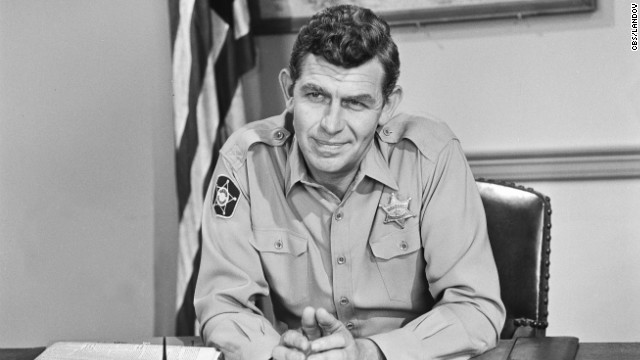 Actor Andy Griffith, who played folksy Sheriff Andy Taylor in the fictional town of Mayberry, died July 3 at the age of 86.
Actor Andy Griffith, who played folksy Sheriff Andy Taylor in the fictional town of Mayberry, died July 3 at the age of 86.
 Nora Ephron, the screenwriter and director whose sharp, edgy romantic comedies featuring strong women took her to the top ranks of a film industry mostly dominated by men, died June 26 at age 71.
Nora Ephron, the screenwriter and director whose sharp, edgy romantic comedies featuring strong women took her to the top ranks of a film industry mostly dominated by men, died June 26 at age 71.
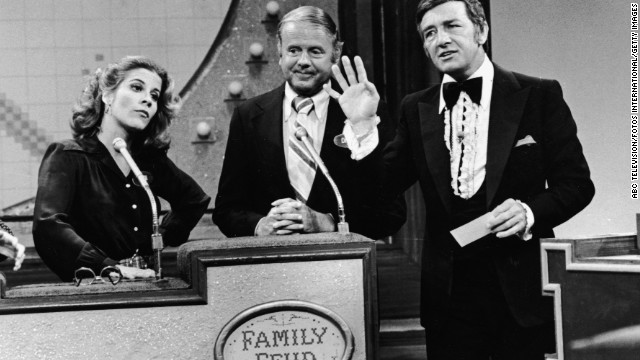 Former "Family Feud" host Richard Dawson died on June 2 at the age of 79.
Former "Family Feud" host Richard Dawson died on June 2 at the age of 79.
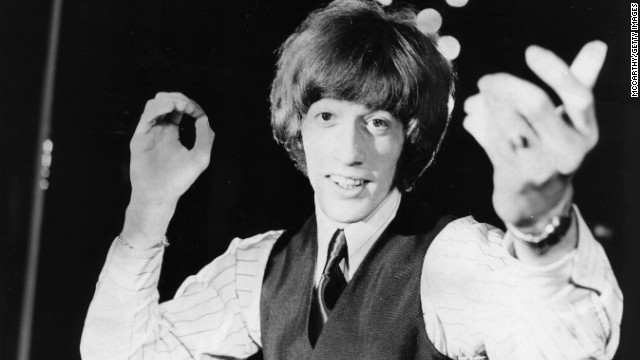 Robin Gibb, one of three brothers who made up the Bee Gees, the group behind "Saturday Night Fever" and other iconic sounds from the 1970s, died on May 20. He was 62. Gibb died "following his long battle with cancer and intestinal surgery," a statement said.
Robin Gibb, one of three brothers who made up the Bee Gees, the group behind "Saturday Night Fever" and other iconic sounds from the 1970s, died on May 20. He was 62. Gibb died "following his long battle with cancer and intestinal surgery," a statement said.
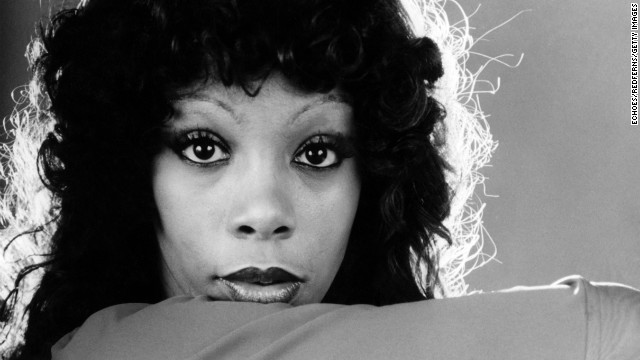 Donna Summer, the "Queen of Disco" whose hits included "Hot Stuff," "Bad Girls," "Love to Love You Baby" and "She Works Hard for the Money," died May 17. She was 63.
Donna Summer, the "Queen of Disco" whose hits included "Hot Stuff," "Bad Girls," "Love to Love You Baby" and "She Works Hard for the Money," died May 17. She was 63.
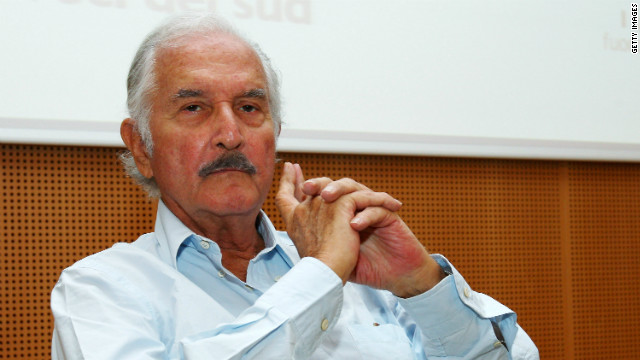 Mexican author Carlos Fuentes died on May 15 at the age of 83.
Mexican author Carlos Fuentes died on May 15 at the age of 83.
 Donald "Duck" Dunn, left, the bass player who laid the musical floor beneath soul legends like Booker T. and the MGs, Sam and Dave and Otis Redding, died May 13. He was 70.
Donald "Duck" Dunn, left, the bass player who laid the musical floor beneath soul legends like Booker T. and the MGs, Sam and Dave and Otis Redding, died May 13. He was 70.
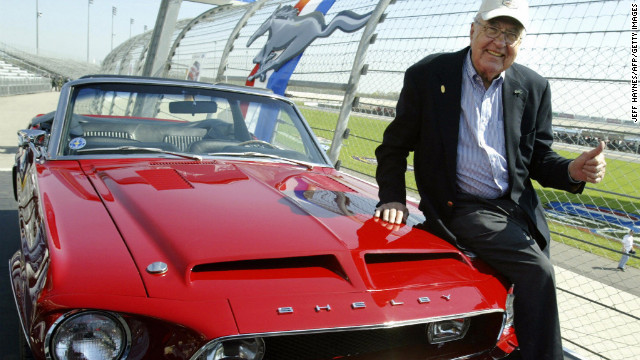 Carroll Shelby, famous for creating high-performance road and racing cars bearing his name, died on May 10 in Dallas. He was 89. His name is probably most associated with the Cobra and the Shelby line of Ford Mustang-based performance cars.
Carroll Shelby, famous for creating high-performance road and racing cars bearing his name, died on May 10 in Dallas. He was 89. His name is probably most associated with the Cobra and the Shelby line of Ford Mustang-based performance cars.
 British-Israeli hairdresser Vidal Sassoon died on May 9 at the age of 84.
British-Israeli hairdresser Vidal Sassoon died on May 9 at the age of 84.
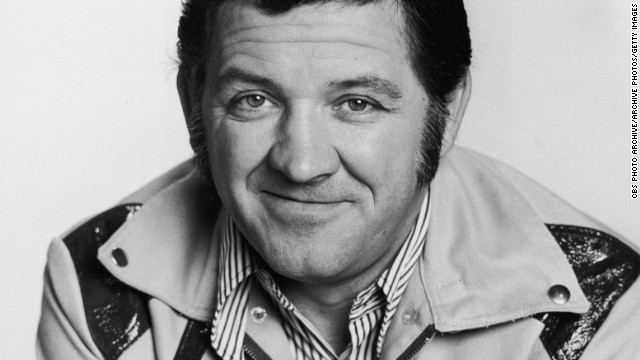 George Lindsey, the actor who portrayed the country-bumpkin mechanic Goober Pyle on "The Andy Griffith Show," died May 6 after a brief illness, his family said. He was 83.
George Lindsey, the actor who portrayed the country-bumpkin mechanic Goober Pyle on "The Andy Griffith Show," died May 6 after a brief illness, his family said. He was 83.
 Adam "MCA" Yauch, a founding member of the pioneering rap band Beastie Boys, died on May 4 after a nearly three-year battle with cancer. He was 47.
Adam "MCA" Yauch, a founding member of the pioneering rap band Beastie Boys, died on May 4 after a nearly three-year battle with cancer. He was 47.
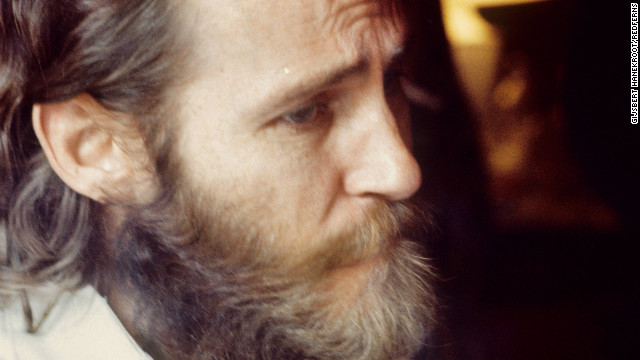 Levon Helm, the drummer, multi-instrumentalist and singer for The Band who kept the band's heart for more than three decades, died "peacefully" April 19, according to his record label, Vanguard Records. He was 71.
Levon Helm, the drummer, multi-instrumentalist and singer for The Band who kept the band's heart for more than three decades, died "peacefully" April 19, according to his record label, Vanguard Records. He was 71.
 Television host Dick Clark poses for a portrait circa 1968. The longtime host of the influential "American Bandstand" died April 18 after suffering a heart attack. He was 82.
Television host Dick Clark poses for a portrait circa 1968. The longtime host of the influential "American Bandstand" died April 18 after suffering a heart attack. He was 82.
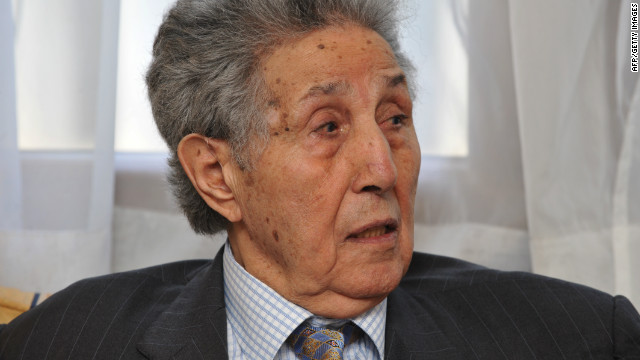 Former Algerian President Ahmed Ben Bella died on April 11 at the age of 96.
Former Algerian President Ahmed Ben Bella died on April 11 at the age of 96.
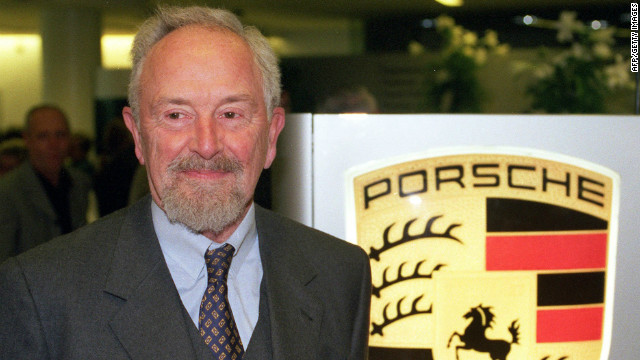 Porsche 911 designer Ferdinand Alexander Porsche died on April 5 at the age of 76.
Porsche 911 designer Ferdinand Alexander Porsche died on April 5 at the age of 76.
 Earl Scruggs, whose distinctive picking style and association with Lester Flatt cemented bluegrass music's place in popular culture, died March 28 of natural causes at a Nashville hospital. He was 88.
Earl Scruggs, whose distinctive picking style and association with Lester Flatt cemented bluegrass music's place in popular culture, died March 28 of natural causes at a Nashville hospital. He was 88.
 Doobie Brothers drummer Michael Hossack died at his home in Dubois, Wyoming, on March 11 at the age of 65 after battling cancer for some time.
Doobie Brothers drummer Michael Hossack died at his home in Dubois, Wyoming, on March 11 at the age of 65 after battling cancer for some time.
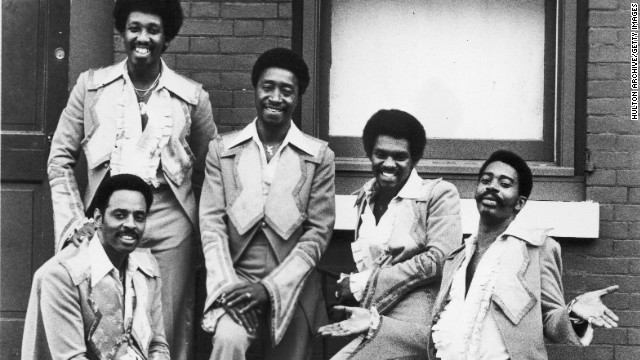 Jimmy Ellis, who belted out the dance anthem "Disco Inferno" in the 1970s for the Trammps, died on March 8 at 74 years old. Here, the Trammps in 1973: From left, Earl Young, seated, Harold Wade, Jimmy Ellis, Stanley Wade and Robert Upchurch.
Jimmy Ellis, who belted out the dance anthem "Disco Inferno" in the 1970s for the Trammps, died on March 8 at 74 years old. Here, the Trammps in 1973: From left, Earl Young, seated, Harold Wade, Jimmy Ellis, Stanley Wade and Robert Upchurch.
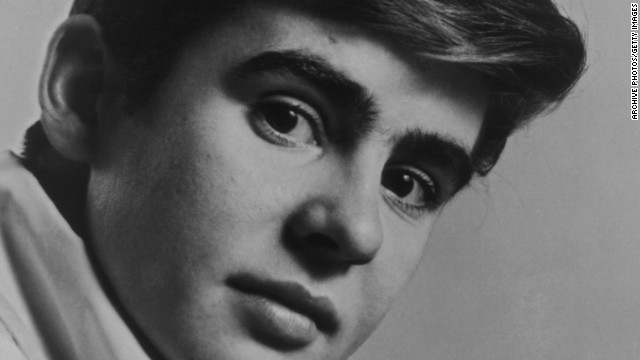 Davy Jones, whose charming grin and British accent won the hearts of millions of fans on the 1960s television series "The Monkees," died on February 29 at age 66.
Davy Jones, whose charming grin and British accent won the hearts of millions of fans on the 1960s television series "The Monkees," died on February 29 at age 66.
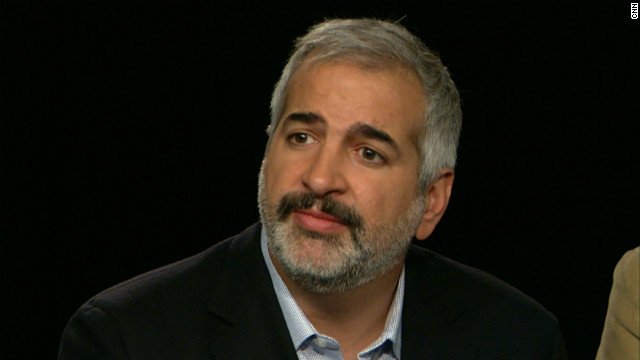 New York Times reporter Anthony Shadid died of an asthma attack in Syria on February 16.
New York Times reporter Anthony Shadid died of an asthma attack in Syria on February 16.
 The news broke on the eve of the Grammy Awards, the music industry's biggest night: The woman with the pitch-perfect voice who once reigned as the queen of pop at the awards show had died. Whitney Houston was found dead by her bodyguard on February 11. She was 48.
The news broke on the eve of the Grammy Awards, the music industry's biggest night: The woman with the pitch-perfect voice who once reigned as the queen of pop at the awards show had died. Whitney Houston was found dead by her bodyguard on February 11. She was 48.
 The last known surviving veteran of World War I died on February 4. Florence Green, 110, was a waitress in Britain's Royal Air Force.
The last known surviving veteran of World War I died on February 4. Florence Green, 110, was a waitress in Britain's Royal Air Force.
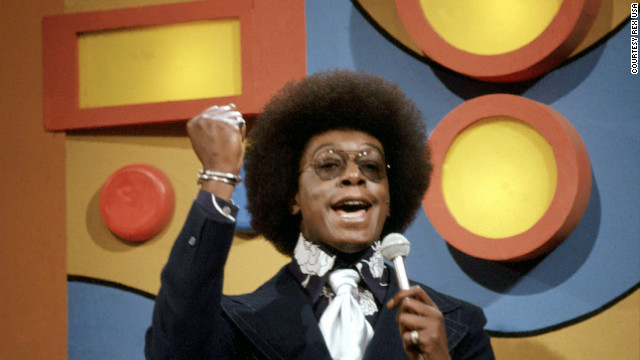 Don Cornelius, the founder of the "Soul Train" television show, was found dead of an apparent self-inflicted gunshot wound to his head on February 1. It was later ruled a suicide. He was 75.
Don Cornelius, the founder of the "Soul Train" television show, was found dead of an apparent self-inflicted gunshot wound to his head on February 1. It was later ruled a suicide. He was 75.
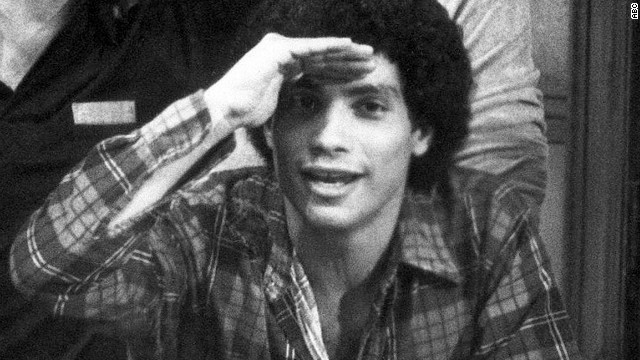 Robert Hegyes, known for his role as Juan Epstein on the '70s sitcom "Welcome Back, Kotter," died on January 26. He was 60.
Robert Hegyes, known for his role as Juan Epstein on the '70s sitcom "Welcome Back, Kotter," died on January 26. He was 60.
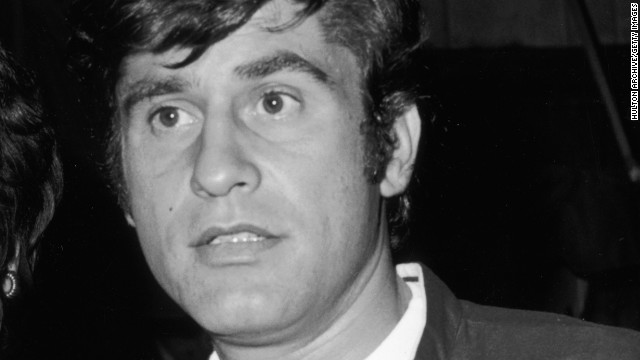 Actor James Farentino, whose television acting career began in the early 1960s, died on January 24. He was 73.
Actor James Farentino, whose television acting career began in the early 1960s, died on January 24. He was 73.
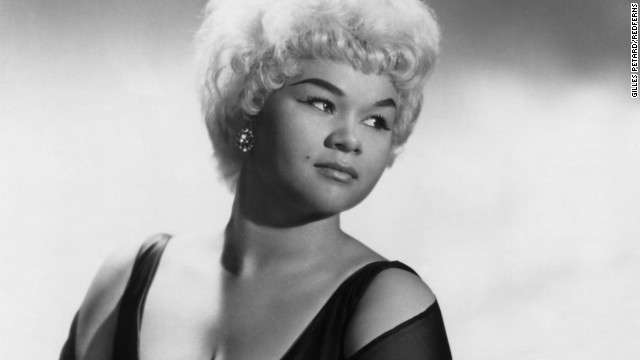 Etta James, whose assertive, earthy voice lit up such hits as "The Wallflower," "Something's Got a Hold on Me" and the wedding favorite "At Last," died on January 20. She was 73.
Etta James, whose assertive, earthy voice lit up such hits as "The Wallflower," "Something's Got a Hold on Me" and the wedding favorite "At Last," died on January 20. She was 73.
 Photos: People we've lost in 2012
Photos: People we've lost in 2012
"Unfortunately, despite the best efforts of the surgeons and doctors taking care of him, his body was not able to withstand the strain of the surgery," his wife and daughter said.
In the 1960s, he took Eastern music mainstream in the West. He lent ethereal, spiritual sounds to the Fab Four through his friendship with Harrison, who recorded them on the "Sgt. Pepper's" album in the song "Within You Without You."
Virtuoso performances at Monterey in 1967 and Woodstock in 1969 helped cement Shankar's place in Western musical history as an ambassador of Eastern wisdom to a generation looking for new values.
"Ravi was a great loss musically, spiritually and physically. God bless to Ravi's family. Peace & Love," Beatle Ringo Starr said in a statement released through a representative.
In Bangladesh's bloody war of separation from Pakistan in 1971, Shankar and Harrison launched what UNICEF calls the first massive fund-raising pop event, The Concert for Bangladesh, to generate donations for the flood of refugees pouring into India.
Later, from 1986 to 1992, Shankar put his politics into practice as a member of India's upper house of parliament, the Rajya Sabha, or state assembly, serving with India's current Prime Minister Manmohan Singh.
"It was difficult, often, to judge what was more remarkable -- the man or his music," Singh said of Shankar on Wednesday. He praised him as one of India's "most effective cultural ambassadors."
Both houses of parliament observed a moment of silence in his honor.
Shankar's musical career had a long life before and after the '60s. He was born on April 7, 1920, and when he and Harrison met, he was already 46 and famous in India as a classical musician, according to his record label biography.
His classical career outlived his counterculture fame, but he continued to meld East with West and composed concertos, which harmonized his sitar with orchestras. He played duos with American classical violin maestro Yehudi Menuhin and composed with American minimalist Philip Glass. He also wrote film music for the Hollywood movie "Gandhi."
Shankar kept homes in the United States and India.
Despite ill health, he shared a stage with his daughter Anoushka, also a sitar virtuoso, in early November.
It was his last public performance.
People we've lost in 2012: The lives they lived
CNN's Harmeet Shah Singh and Denise Quan contributed to this report.





















































